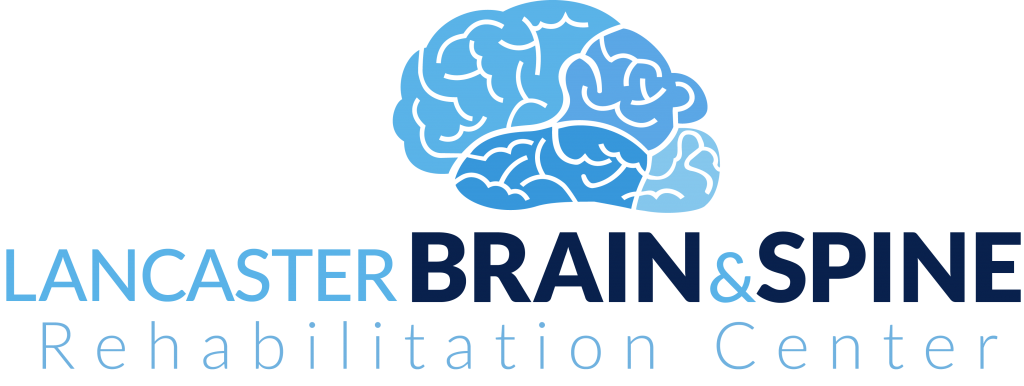Even though neurodegeneration (the slow breakdown of your brain) is a natural process of aging, people generally want to avoid or prolong it as long as possible. The most common neurodegenerative diseases that aging people experience are dementia, Alzheimer’s and Parkinson’s.
According to the National Library of Medicine, approximately two out of three Americans experience some level of cognitive decline or impairment around the average age of 70. While this may be a scary statistic, it’s also one that can motivate you to incorporate healthy habits into your day-to-day life to limit the effects of these life-changing diseases.
That’s why we’re sharing five simple ways you proactively prevent and delay cognitive decline, and maintain your quality of life.
What Is Neurodegeneration & Why Does It Happen?
Your brain is made up of billions of neurons, and neurons are specialized cells that send and receive signals, helping your brain work properly. Neurodegenerative diseases, such as dementia, occur when those neurons start to die and/or stop working.
There are countless factors that contribute to cognitive decline and increase your risk of developing these diseases, many of them being repeated stressors over time. Examples include inflammation, long term stress and trauma. Neurodegenerative diseases can show up in many different ways, with symptoms including memory loss, anxiety, mood changes and more.
If you are diagnosed with one of these diseases, it can be hard to slow down the process, since the damage has already started to occur. So that means prevention is key. No matter what age you are now, the earlier you start prioritizing activities like we discuss below, the more it will help to prolong or even prevent these diseases from appearing.
How Can I Prevent Or Prolong Neurodegeneration?
Luckily, there are proven approaches you can take to prevent or delay the onset of neurological diseases. Let’s explore five simple ways you can proactively protect your brain and its health, for as long as possible.
- Exercise Regularly
Exercise does amazing things for your nervous system and is the number one activity you can do to help prevent neurodegeneration.
Generally, we recommend at least 150 minutes of moderate exercise per week, that gets your heart rate up to approximately 70% of its maximum rate. This amount of exercise can decrease your risk of cognitive decline by 35% or more (which is impressive alone), plus benefit the rest of your body and mind too.
Exercise is beneficial because while you’re improving cardiac function, you’re also increasing blood flow to your brain. And increased blood flow means your brain is receiving more nutrients and oxygen, making your blood vessels more pliable. This leads to healthier neurons and a reduced risk of stroke and brain disease.
If you want to take it up a notch to benefit your brain and body even more, add resistive exercises to your routine. Ideally, you want to find something that you can do long term — whether that’s lifting weights, swimming, running, whatever! Find something you enjoy, because being consistent and making exercise part of your daily routine will produce optimal results.
- Hit The Sauna
Did you know that using a sauna can give your brain almost the same results as exercise?
It creates similar short term stress on your body and elevates both your blood pressure and heart rate, just as it would when you’re exercising. The only difference is that your muscles aren’t contracting (therefore, strengthening) as they would while you exercised. While using a sauna can benefit everyone, it’s especially a great option for those who can’t exercise.
The amount of time you need to spend in a sauna to receive these benefits depends on the kind of sauna, as well as the type and temperature of heat you’re in. For example, spending 15-20 minutes in a sauna at a high temperature, could give comparable effects to spending 35-40 minutes in a sauna with a lower temperature.
Studies show that people who use a sauna four to seven times per week have a 66% decrease in Alzheimer’s compared to those people who do less — wow!
- Practice Good Sleep Hygiene
There are several different stages of sleep, and they’re all important. Both deep sleep and REM sleep (rapid eye movement) are important for your brain function and health.
During deep sleep, your body flushes out and cleanses your brain of waste products using your lymphatic system. This process is very important for your brain health, and unfortunately doesn’t occur if you don’t get into a deep sleep.
During REM sleep, you process emotions, organize memories, and rehearse activities or new things that you learned that day. This process is important for cognition — if you’re unable to reach REM sleep, your memory and cognition may be negatively affected.
It’s been shown that people who have sleep disorders, such as insomnia, sleep apnea and those who report being sleepy during the day, are more prone to cognitive decline.
If you’re having trouble sleeping, we recommend you speak with a doctor for ways to improve your sleep hygiene. Book your free 15-minute phone consultation.
- Try Intermittent Fasting
Intermittent fasting is often connected to weight loss, but this practice has benefits for your brain as well. Even incorporating it as little as two times per week can be beneficial, and is incredibly simple to add to your regular routine.
Intermittent fasting is essentially restricting calories or any type of nutrients for a 16-18 hour window. This puts a low amount of stress on your body, which activates your immune system. When activated, your immune system naturally searches for damaged cells and clears them out before they cause problems. (This includes clearing out damaged or dying neurons in your brain that could contribute to neurodegeneration — and that’s why we recommend intermittent fasting to accelerate concussion healing as well.)
- Take Healthy Supplements
Omega-3 fatty acids are wonderful for your health and many of us don’t get enough in a typical nutritional diet. Two types of these fatty acids in your body are omega-3 and omega-6.
Omega-6 fatty acids:
- Are found in fried foods
- Cause inflammation in our bodies, which leads to nerve degeneration
- Therefore are NOT recommended
While omega-3 fatty acids:
- Are found in healthier foods, like fish, nuts, avocados
- Are anti-inflammatory in nature
Omega 3s are essentially a brain ‘super-food’ since they’re the building blocks of neurons. Neurons are coated in omega-3 fatty acids, so having an abundance of them in your diet gives your body the ability to repair neurons and keep your brain healthy.
How Can I Improve My Brain Health?
We always recommend that the sooner you can implement as many of these easy brain practices into your daily life as possible, the better.
Because remember…
- It’s never too late to start
- Prioritize progress over perfection
- Find exercise that you enjoy so that you’ll stick with it — consistency is key
If you’d like to learn more about proactive and preventative brain health exercises, contact us for a free 15-minute phone consultation. Our team of professionals would be happy to discuss if the care and treatments we provide are right for you.






